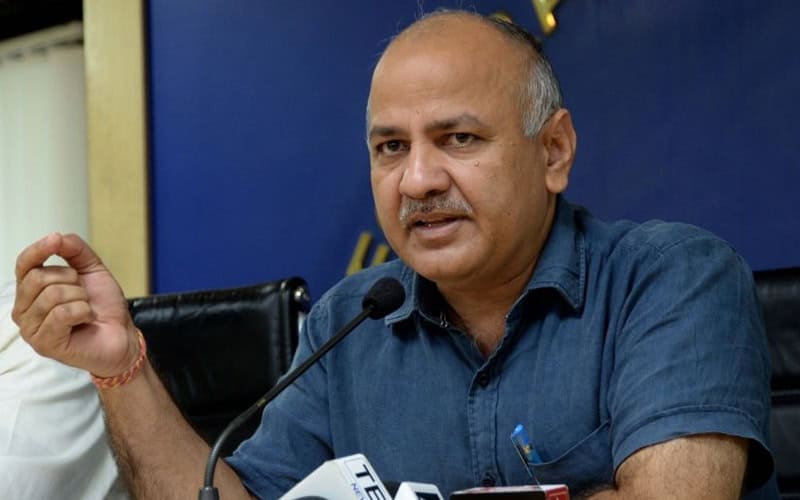New Delhi: Delhi Education Minister Manish Sisodia here on Saturday urged the central government to make a law to allocate 6 per cent of the gross domestic product (GDP) for education.
Sisodia, also the Deputy Chief Minister, raised the demand during a special meeting of the Central Advisory Board of Education (CABE), convened by the HRD Ministry to discuss and finalise the National Education Policy.
The policy’s preamble should state “providing good quality education would be the responsibility of the government through the government schools,” Sisodia said.
While lauding few provisions of the policy, Sisodia said unless there was a law binding the governments to allocate the fund, the policy per se would not result in the transformation of education.
Just like governments were bound by law to have ceiling on fiscal deficit or ‘one country, one tax’ system, to implement the provision of the new education policy, the governments should be bound to spend 6 per cent of the GDP, he said.
Sisodia said, “the quality of education provided in government schools should be at par with the private schools. Going to private schools should just be an option, not a necessity due to the lack of quality education in government schools.”
Stressing the need for providing quality education, he said, “Only five per cent of children get access to quality education, the rest 95 per cent have been getting average quality education. It needs to change. It is the job of the government to provide education to all children.”
Opposing the proposal of private education board as a “dangerous idea” , he said, they would promote private schools and further dilute the government responsibility in school education.
Getting into the specifics, Sisodia said while the idea of three years of preschool education was good, the clarity in the respective roles of Department of Woman and Child Development and Education department was must.
He supported the recommendations on foundational literacy and numeracy, and pointed that the Delhi government had been working on it through ‘Chunauti’ and ‘Mission Buniyaad’.
On higher education, he appreciated the idea of “research institutions” but cautioned against degree awarding autonomous colleges. He also questioned the concept of exclusive “multi-faculty institutions”.
“The institutions like AIIMS, IITs and IIMs are niche institutions and their primary character should not be diluted. As we move to the era of hyper specialisations, the scope for specialised institutions should not be shut,” he said
He said the Indian education system was “highly regulated and poorly funded”. “This needs to change. Thus, proposal like RSA with the Prime Minister as its chair, which will add another layer of regulation needs to be revisited,” he said.

